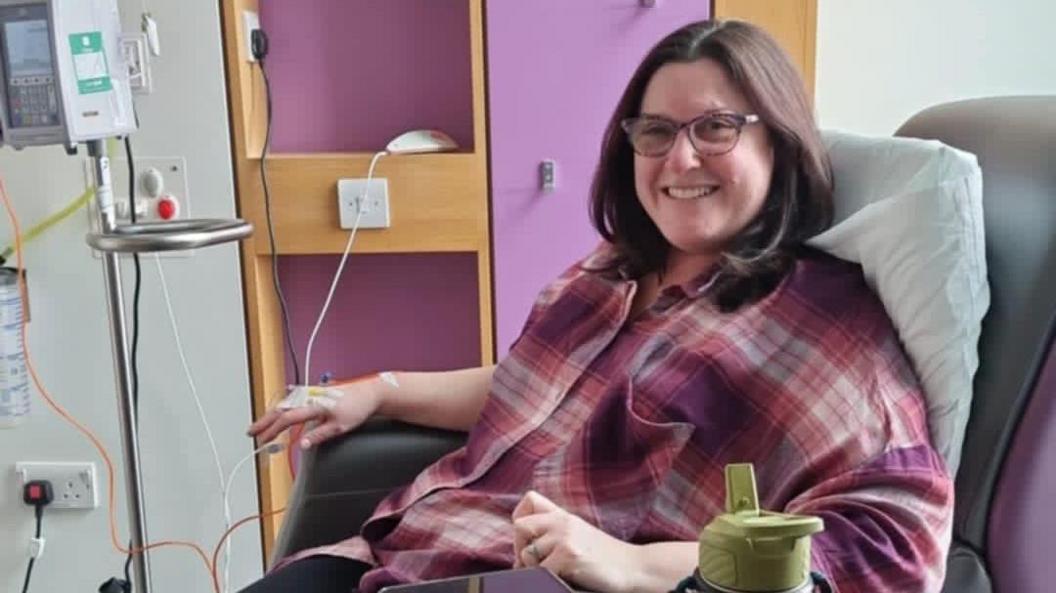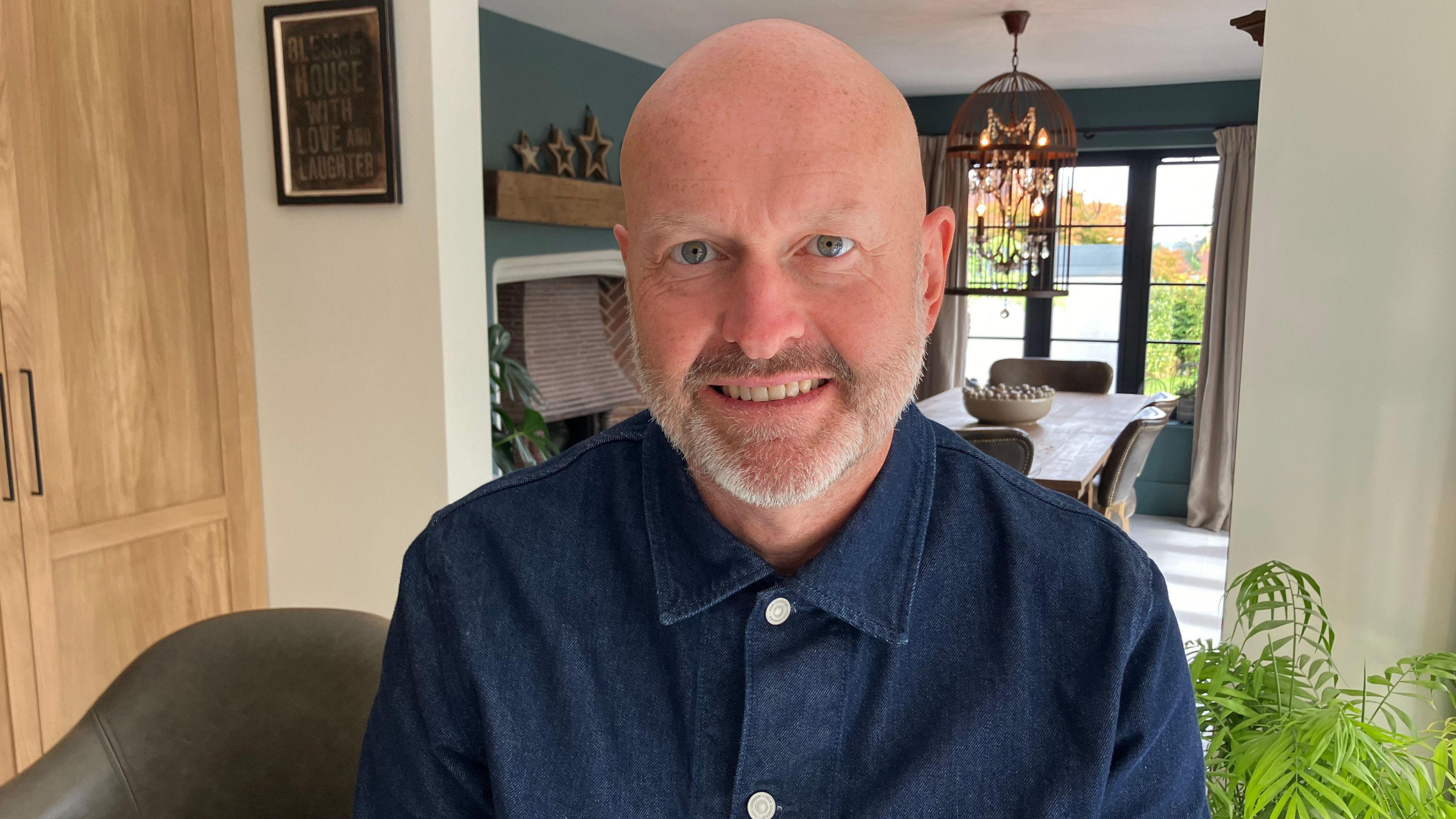Cancer patient fundraising for £120k chemotherapy

Jamie Scott has been told she cannot access the treatment, so she is trying to pay for it herself
- Published
A cancer patient who works at the NHS is trying to raise £120,000 for chemotherapy after she was refused the treatment.
Jamie Scott, from Telford, was diagnosed with eye cancer in 2011, which has spread to her liver.
The 49-year-old communications worker at an NHS mental health trust has been told she cannot access the treatment on the health service - which sees high-dose chemotherapy delivered to the liver - despite it being approved for NHS use with special requirements.
"I feel hopeless right now because my oncologist said this is a gold standard treatment, but he can't refer me for it," she said. "I am trying to fundraise." NHS England has been approached for comment.
The specialist treatment costs £40,000 per cycle, with most people needing at least three rounds.
"It just feels impossible to raise £120,000. I don't know what I'm going to do," Ms Scott said.
She said her total so far was about £6,700. "I have a lovely colleague; she's been really trying to help me. She has had bake sales for me, and she made T-shirts with a QR code for my JustGiving page.
"But I feel a bit desperate," she said.
"There will come a time when there will be too much tumour in my liver and the treatment won't be viable, so by the time the NHS decides what they want to do it might be too late."
She said if she did not get the treatment or get onto a clinical trial, she would be "waiting to die".
"It's horrible. I can't think about the future," she added.
'Special arrangements'
The National Institute for Health and Care Excellence (NICE) said patients could receive the treatment under "special arrangements" while more evidence is gathered on the clinical effectiveness and value for money of the procedure.
But it warned that current evidence showed that there were "serious, well-recognised" complications linked to the treatment.
The charity Ocular Melanoma UK said about 600 people in the UK are diagnosed with ocular melanoma each year, and up to half go on to develop incurable secondary disease in the liver.
It said that the treatment had been shown to control tumours in almost nine in 10 patients whose ocular melanoma had spread to the liver, with some patients surviving for years after the treatment.
The charity claimed international patients could travel to the UK for treatment, but British patients were being excluded unless they could raise the funds.
Get in touch
Tell us which stories we should cover in Shropshire
Follow BBC Shropshire on BBC Sounds, Facebook, external, X, external and Instagram, external.
- Published9 October

- Published17 September
